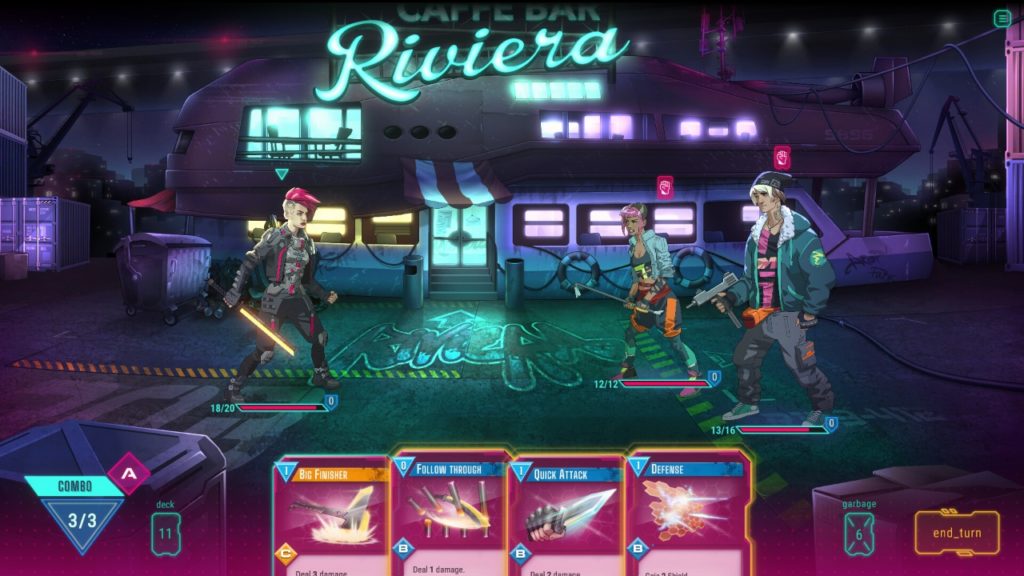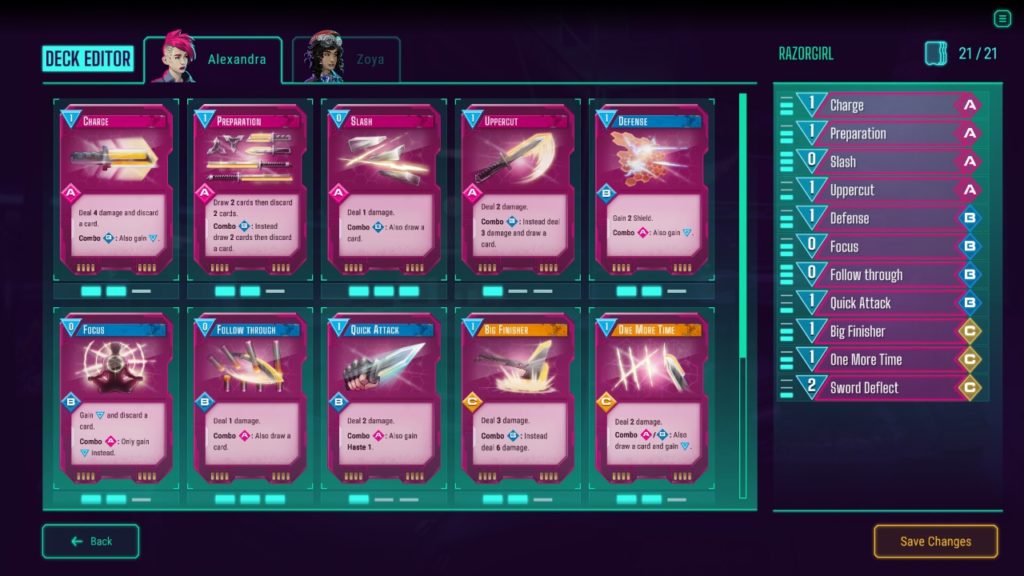HeistGeist review
Set in a cyberpunk version of Venice, HeistGeist from Doublequote Studios mixes hacking, deckbuilding, and turn-based combat with a choice-driven narrative to tell the story of Alexandra, a street smart thief trying to take down the corporations and work out exactly how her team were betrayed on their last job.
As a set up it’s nothing new for the cyberpunk genre. In fact the setting and protagonist are so par-for-the-course that I was initially ready to disregard HeistGeist slightly – but I’m glad I didn’t. Alexandra is a troubled antihero with a sharp tongue and a murky past, sure, and her allies are mostly wheeler-dealer small-time criminals with dubious morals, and the city is in the grip of the usual evil high-corporate mega-conglomerates, but there’s something really likeable and playable about HeistGeist that stands out.

It’s not the writing, to be honest and fair. As I said, this is kind of Cyberpunk 101, and it’s not the art style, which is bright and attractive enough but, again, fairly simple. It’s more down to the combat being simple and fun, and the mission structure offering multiple routes to each objective.
Missions take the form of heists, unsurprisingly, and see Alex and her allies move along a grid-based map to hack security, fight drones and guards, and occasionally make decisions that determine her route. For example, an early one sees her trigger an alarm during the heist, and she can then coordinate with her handler to either distract or otherwise impede the emergency responders coming her way. You’ll also come across doors and other impediments that need hacking.
This is a case of assigning specific hacker tools to reduce the “HP” of nodes in a chain without going too far and destroying them, or running out of moves. You can apply a breaker tool to remove the lock on a data bridge, for instance, but if you accidentally destroy it, it becomes impassable and you’ll need to restart the attempt. You’re rarely penalised for this though, which is a shame, as narrative consequences would add weight to your failures.

Combat is a case of assembling your deck of cards and then drawing one at a time to attack your enemies. Sounds straightforward, but HeistGeist does some fairly interesting things with the system. Some cards will grant you shield points on top of your health, to absorb damage (though some enemies can bypass this) or negate certain statuses. Enemies can also increase their shields, though, requiring you to boost your damage by combining cards. Each card has an assigned type, from A to C, and will tell you which other cards it combos with to produce bonus effects such as giving you more energy to play cards with, or allowing you to discard and draw new possibilities.
HeistGeist does quite a lot with relatively little. It doesn’t have a much original about it, but what’s here is an enjoyable enough adventure with plenty of action and intrigue to keep you engaged in the campaign.





